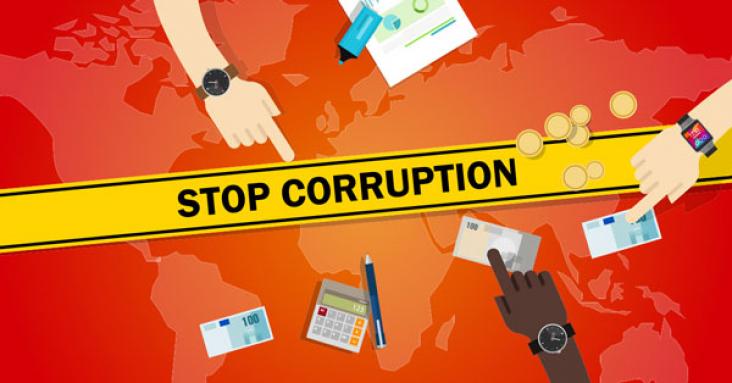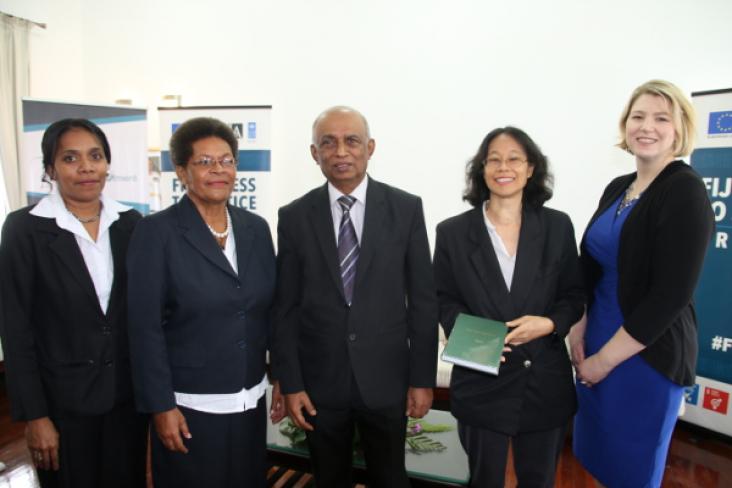
Substantially reducing corruption and bribery in all forms is a target of goal 16 (peace, justice and strong institutions). This blog reviews the rise of anti-foreign bribery legislation in the 20 years since the OECD's Anti-Bribery Convention was signed by 43 states and countries.
The First 100 Years is a ground-breaking history project charting the journey of women in law since 1919. The project’s vision is to ensure a strong and equal future for all women in the legal profession through a deep understanding of the past combined with a celebration of today. It therefore supports SDG 5 with a focus on target 5 concerned with women in leadership positions. This video interview with Lady Hale, the first female President of the Supreme Court, gives a personal account of her being the ‘first’ many times over and the role of women in the legal profession.
Contributing to SDGs 17 (Partnerships for the Goals) and 16 (Peace, Justice and Strong Institutions), The United Nations collaborate with criminologists, sociologists, and practitioners to produce guidance on preventing the use of children in violent non-state armed groups.
Partner content
United Nations UniversityChildren and Extreme Violence, United Nations University, October 2017.
Contributing to SDGs 17 (Partnerships for the Goals) and 16 (Peace, Justice and Strong Institutions), the UN collaborated with scholars and practitioners from a range of fields to explore opportunities to prevent children entering violent non-state armed groups.
Partner content
United Nations UniversityChildren and Extreme Violence, United Nations University, New York, October 2017.
Contributing to SDGs 17 (Partnerships for the Goals) and 16 (Peace, Justice and Strong Institutions), the UN collaborated with academics in communications and psychology; practitioners in brand creation, marketing, and cause campaigns; social media experts and practitioners and entertainment content creators to gain a deeper understanding of recruitment typologies, messaging and intergroup competition involving children in the Islamic State.
Partner content
United Nations UniversityUnited Nations University, October 2017.
Directly relating to SDG 16 (Peace, Justice and Strong Institutions), this policy brief looks at how the changing nature of organized crime and corruption may impact state fragility, inequality and conflict in the coming decades.
Partner content
United Nations UniversityUnited Nations University, New York, October 2017.
Focussing on SDGs 16 (Peace, Justice and Strong Institutions) and 17 (Partnerships for the Goals), this research report explores how organized crime and corruption will impact governance in 2050 and what states can – and should – do about it now.
A new criminal corporate offence of failing to prevent facilitation of tax evasion comes into effect on 30 September 2017 in the UK. This development supports SDG 8 Decent work and economic growth and SDG 16 Peace, justice and strong institutions.

The goal of SDG 16.3, to promote the rule of law at the national and international levels and to ensure equal access to justice for all, relies to a large extent on access to the primary materials. The stability of the legal system of a State is usually assessed by the availability of its laws and their application and LexisNexis is proud to have been chosen as a partner to continue publication of the authorised Fiji Law Reports. Partnership for the goals is key to their success, as envisaged by SDG 17.
To mark US Independence Day 2017, LexisNexis Legal & Professional has released new data for 98 countries indicating that the stronger a country’s rule of law, the greater it performs against measures of life expectancy, civil liberty, and happiness. This helps to demonstrate how SDG 16 Peace, Justice and Strong Institutions underpins all of the SDGs.
